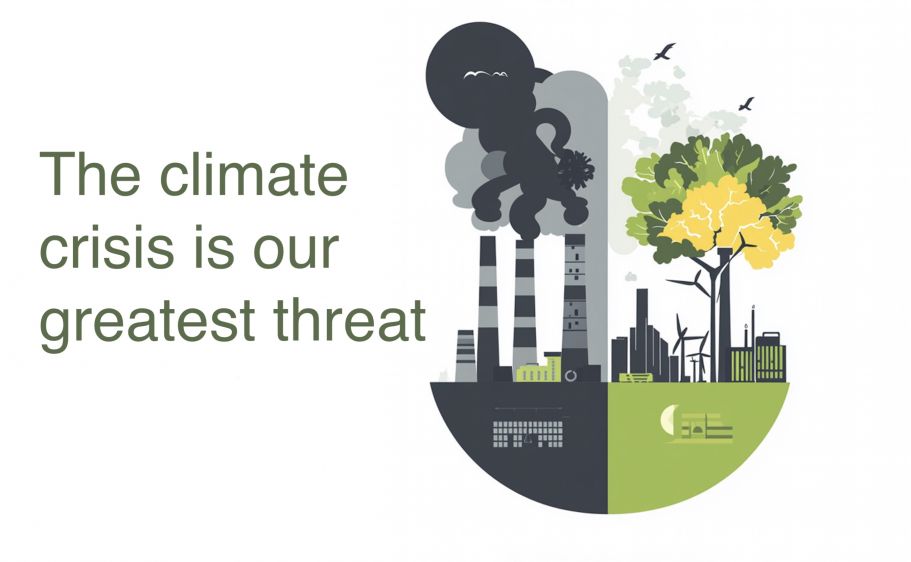From Climate Crisis to Climate Opportunity: Why True Innovation is Just Beginning
"The climate crisis is our greatest threat."
We hear this phrase repeatedly—and we’re starting to tune it out. But what if we shifted the perspective? Instead of focusing on the looming catastrophe, why not talk about the greatest innovation potential of our time? What if the climate crisis wasn’t a limitation but our greatest driver? Welcome to the age of climate opportunity.
The Problem: We’re Thinking Too Small
Most discussions about climate technology revolve around reduction—less CO₂, less waste, less energy consumption. But "less” is not enough.
Here’s the issue:
- Our systems are built for linearity. Resources in, products out, waste left behind.
- Our innovation culture is fear-driven. Urgency paralyzes us instead of inspiring us.
- Our goals are defensive. We want to minimize harm rather than create a positive impact.
The result? We’re missing the chance to use the climate crisis as a catalyst for radical transformation.
The Solution: Rethinking Climate Innovation
We don’t need a "green coat of paint.” We need systemic change. And it starts by asking the right questions:
-
How do we create systems that are regenerative rather than destructive?
Technologies like bioengineering, circular production, and regenerative agriculture aren’t dreams—they’re tangible opportunities.
-
How can sustainability become the new norm?
When sustainable solutions are cheaper, more efficient, and better than alternatives, the term "green” will no longer be a niche.
-
How do we make climate protection exciting?
Think gamified tools that make CO₂ footprints visible or urban concepts that make cities more livable and sustainable.
From Sacrifice to Excitement: The New Era of Climate Opportunity
The future of climate innovation isn’t bleak or ascetic. It’s exciting, creative, and full of possibilities.
1. Circular Economy 2.0: Turning Everything into a Resource
In nature, there’s no waste—and that’s exactly what we need to replicate. Companies like Loop and Everledger are showing how circular systems can integrate into the economy.
2. Planetary Intelligence: Climate Protection Through Data
Imagine being able to "read” the Earth like a dashboard. Through satellites, AI, and IoT, we could understand nature in real-time and respond accordingly.
3. Climate-Positive Living: Sustainability That Inspires
What if climate-friendly choices felt less like sacrifice and more like an upgrade? Think electric supercars, urban oases, or smart technologies that improve everyday life.
Why Now Is the Perfect Moment
"But isn’t it already too late?” – a phrase we often hear. The truth is the opposite. The climate crisis hasn’t just brought problems; it has ushered in a new era of opportunity:
- Investors are more selective: This means less hype, but more focus on solutions that truly work.
- Technology has matured: From green hydrogen to urban energy generation, the tools are here—we just need to use them.
- Demand is rising: People want sustainable solutions—as long as they’re affordable and simple.
The Call: Let’s Build the Climate Opportunity
The narrative of the "climate catastrophe” is worn out. Let’s talk about climate opportunity: about technologies, concepts, and solutions that don’t just save the world but improve it.
What does this mean in practice?
- For entrepreneurs: Develop products that combine sustainability with excellence.
- For consumers: Support companies that don’t just promise but deliver.
- For investors: Back innovations that are both profitable and planet-friendly.
The Future: Collaboration Over Competition
Our greatest challenge holds our greatest opportunity. If we see the climate crisis not just as a threat but as an invitation, we can create innovations that go far beyond what we can imagine today.
The question isn’t whether we’ll fail or succeed—it’s whether we’re bold enough to seize these opportunities.
What’s your take?
Is the climate crisis really just a threat—or our best chance to build a better world? Share your thoughts info@impactmaker.co.

